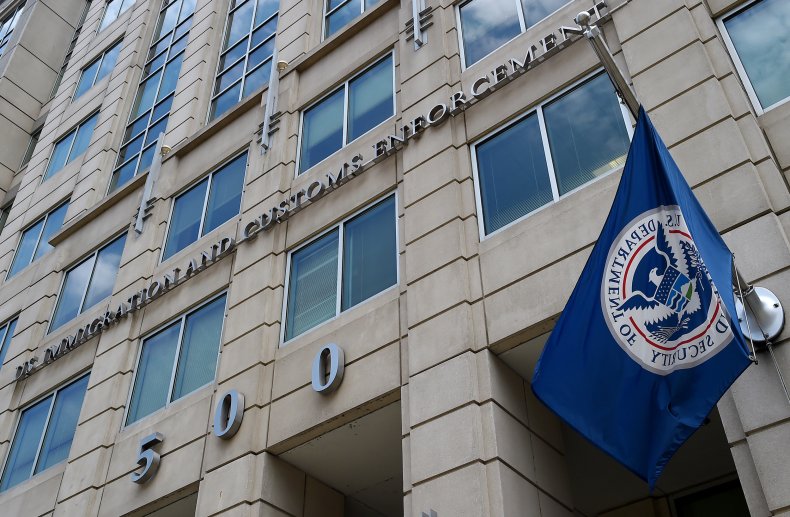Judge Says Florida Can't Block Biden Immigration Directives It Disagrees With
Florida Attorney General Ashley Moody has filed an appeal after a federal judge ruled that the state can't block immigration directives put into place by President Joe Biden's administration just because it opposes them.
Moody filed the appeal on Wednesday, according to The Daytona Beach News-Journal.
U.S. District Judge Charlene Edwards Honeywell issued a 23-page decision Tuesday rejecting Moody's request for a preliminary injunction in a lawsuit she filed against the administration in March.
The lawsuit challenged two of Biden's immigration memos, arguing that the decisions threaten public safety.
The first memo, issued by the Department of Homeland Security (DHS) on January 20, said the agency was setting a 100-day "pause on certain removals" as it reviewed policies and practices.
The directive was later revised in a February 18 memo issued by U.S. Immigration and Customs Enforcement (ICE). The agency detailed "interim priorities" for immigration enforcement, including focusing on immigrants who pose national security threats or have been convicted of gang-related activity or other felonies.
ICE officers were also instructed to consider mitigating factors before making an arrest on a non-citizen, such as whether their criminal activity was recent, how long of a jail or prison term they served, and whether they have ties to U.S. family members or medical needs.
Moody argued in a March court filing that these actions will "allow criminal aliens to be released into and move freely in the state of Florida, and their resulting crime will cost the state millions of dollars on law enforcement, incarceration, and crime victim's assistance."
The attorney general also contended that the immigration policies violate federal laws, including the Administrative Procedure Act.
But on Tuesday, Honeywell ruled that the memos aren't subject to judicial review because they are "interim policies"—not final laws or actions.
"Clearly, the interim policies are a work in progress as evidenced by the additions to the policies from the January 20 memo to the February 18 memo," the order said. "Moreover, the February 18 memo indicates that the Secretary is continuing to get input from the leadership of ICE, CBP, and DHS. The guidelines are just that; they are not statutes and do not have the status of law as they constitute a prioritization and not a prohibition of enforcement."
Honeywell added, "The ordering of priorities is not a refusal to act, but rather is a specific choice to act as it relates to certain matters over others. Here, Florida simply disagrees with the choices made by the Biden Administration as to the priorities."
Newsweek reached out to Moody's office for comment on Honeywell's decision but didn't receive a response before publication.


